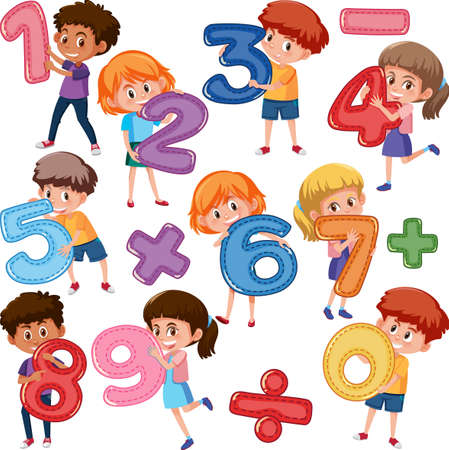Introduction to Junior Angler Programmes
If you’re a parent looking for new and exciting ways to help your children connect with nature, learn valuable life skills, and have some fun outdoors, junior angler programmes in the UK might be just what you’re after. These programmes are specially designed for young people, offering a safe and friendly environment where children can learn how to fish, respect local wildlife, and even make new friends along the way.
Fishing has long been a cherished pastime across the UK, and it’s easy to see why so many families are drawn to junior angler schemes. Whether you live in the countryside or closer to one of Britain’s bustling cities, there’s likely a club or event nearby that welcomes budding anglers of all abilities. Not only does fishing encourage patience and concentration, but it also gives children the chance to unplug from screens and enjoy some quality time by the water—often with their family right by their side.
Here’s a quick look at some of the benefits junior angler programmes can offer:
| Benefit | Description |
|---|---|
| Skill Development | Children learn practical skills like knot-tying, baiting hooks, and casting lines. |
| Nature Connection | Kids gain a deeper appreciation for local wildlife and conservation efforts. |
| Family Bonding | Opportunities for shared experiences between parents and children in a relaxed setting. |
| Confidence Building | Trying something new helps boost self-esteem as children master new techniques. |
| Physical Activity | Time spent outdoors encourages healthy movement away from screens. |
With so many positive outcomes, it’s no wonder junior angler programmes have become such a popular choice for UK families. In the following sections, we’ll explore how these programmes work, how to get involved, and what parents need to know before getting started.
2. What Makes a Great Junior Angler Programme?
When it comes to finding the perfect junior angler programme for your child in the UK, knowing what to look for can make all the difference. From ensuring your child’s safety to fostering a real love for fishing, the best clubs and courses go above and beyond just teaching the basics. Below, we break down the key features that define a high-quality angling experience for young people.
Safety First: A Top Priority
Every parent wants peace of mind when their child is learning something new outdoors. The best junior angling programmes have robust safety measures, including qualified staff, risk assessments, and clear emergency procedures. Make sure coaches are DBS checked and first aid trained—these are non-negotiables.
Expert Coaching and Support
It’s not just about catching fish! A great club will have experienced and patient instructors who know how to engage children at different ages and skill levels. Look for programmes that offer structured lessons, hands-on practice, and plenty of encouragement. The right coaching can inspire confidence and help young anglers develop lifelong skills.
Key Coaching Qualities
| Quality | Description |
|---|---|
| Qualified Coaches | Certified by recognised UK angling bodies (e.g., Angling Trust) |
| Patience & Encouragement | Supportive approach tailored to each child |
| Progress Tracking | Regular feedback on improvement and achievements |
A Welcoming Community Feel
The most memorable angling experiences come from being part of a friendly club where everyone is welcome—no matter their background or ability. Programmes with a strong sense of community provide opportunities for children to make friends, join events, and feel like they belong.
Community Support Checklist
- Inclusive environment for all abilities
- Family involvement encouraged
- Regular social activities and competitions
- Mentoring from older or more experienced anglers
Top Tip for Parents:
If you’re unsure about a programme, ask if you can visit a session or speak with other families who’ve taken part. First-hand experiences often give the best insight into whether it’s the right fit for your child!

3. Popular Programmes and Clubs Across the UK
When it comes to nurturing young fishing enthusiasts, the UK is blessed with a wonderful variety of junior angler programmes and clubs. These initiatives aren’t just about learning to fish—they’re about building friendships, enjoying nature, and developing lifelong skills in a safe, friendly environment. Let’s have a look at some trusted options across England, Scotland, Wales, and Northern Ireland, as well as tips on how your family can get involved.
England: Well-Loved Junior Angling Schemes
In England, the Angling Trusts Get Fishing initiative is widely regarded as a fantastic starting point for children of all abilities. Local angling clubs often run their own junior sections too, such as the Leeds Junior Anglers Club, which organises regular coaching sessions and fun matches for youngsters.
Spotlight: Popular English Programmes
| Programme/Club | Location | Main Features | How to Join |
|---|---|---|---|
| Angling Trust Get Fishing | Nationwide | Beginner sessions, family days, certified coaches | Visit website to register events near you |
| Leeds Junior Anglers Club | Leeds, Yorkshire | Weekly coaching, competitions, community events | Email club secretary or visit local tackle shop for details |
| Thames Valley Angling Association Juniors | Berkshire & Oxfordshire | Pond days, river trips, holiday camps | Contact via TVAA website or Facebook page |
Scotland: Encouraging Young Talent in Beautiful Settings
Scotland’s legendary lochs and rivers provide the perfect backdrop for learning to fish. The Scottish Anglers National Association (SANA) Youth Programme stands out for its dedicated coaching days and youth championships. Local clubs like Dundee Angling Club Juniors also offer supportive environments for beginners.
Scottish Programme Highlights
- SANA Youth Programme: Open to ages 11-17; annual youth championships; qualified coaches.
- Dundee Angling Club Juniors: Spring and summer sessions; loan equipment available; friendly competitions.
Wales: A Community Spirit on the Waterways
The Welsh countryside is home to a number of welcoming junior fishing groups. The Welsh Federation of Coarse Anglers (WFCA) runs family-friendly “have a go” days throughout the year. Many local clubs—like Abergavenny Angling Club Juniors—offer affordable memberships and plenty of support for families new to angling.
Aberavon Juniors Angling Club at a Glance:
- Covers coarse and sea fishing experiences for all ages.
- No experience necessary; equipment supplied for beginners.
- Youth competitions and picnic events during school holidays.
Northern Ireland: Fostering Confidence Along Peaceful Rivers and Lakes
Northern Ireland boasts several well-run junior schemes coordinated by organisations such as The Ulster Angling Federation (UAF). Clubs like Lough Erne Junior Anglers Club focus on building confidence and respect for nature through hands-on workshops and day trips.
| Northern Irish Clubs & Schemes | Main Activities Offered | Joining Info & Contacts |
|---|---|---|
| Lough Erne Junior Anglers Club | Pike & trout fishing tuition; group outings; safety briefings included | Email club secretary or check UAF social media pages for updates on taster sessions. |
No matter where you live in the UK, there’s likely a friendly junior angler programme nearby ready to welcome your child into the world of fishing. Most clubs are run by passionate volunteers who know just how important it is to make every session fun, safe, and confidence-building. If you’re unsure where to start, pop into your local tackle shop or check with national governing bodies—they’ll be delighted to help you find the perfect fit for your young angler!
4. Essential Kit and Safety Tips
If your child is taking their first steps into the world of junior angling, making sure they have the right kit and a safe, enjoyable experience is absolutely key. Here’s a handy guide to what every young angler needs, along with some friendly advice for keeping things safe and fun on the water.
Must-Have Gear for Junior Anglers
| Item | Why It’s Important | Top Tip |
|---|---|---|
| Child-sized Rod & Reel | Easier to handle and learn with; helps build confidence | Choose a lightweight combo designed for beginners |
| Barbless Hooks | Safer for children and fish alike; easier to remove | Always double-check hooks before each session |
| Landed Net & Unhooking Mat | Keeps fish safe during catch-and-release; teaches respect for wildlife | Show your child how to wet their hands before handling fish |
| Pocket Tackle Box | Keeps small items organised and prevents loss or mess | Label compartments for easy access during excitement! |
| Life Jacket or Buoyancy Aid | Essential near open water, even on supervised venues | Make it non-negotiable—safety comes first! |
| Weather-Appropriate Clothing | Keeps kids comfortable throughout the day (think layers) | Packs a raincoat and wellies—British weather is full of surprises! |
| Sunscreen & Hat | Protects against sunburn, even on cloudy days by the lake or riverbank | Reapply sunscreen regularly, especially after lunch breaks or messy hands! |
| Bottle of Water & Snacks | Keeps energy up and spirits high, especially during longer sessions | A thermos of tea can be a real treat on chilly mornings! |
Safety First: Top Tips for Parents and Kids
- Supervision: Always keep an eye on your child, especially near water’s edge.
- Tackle Awareness: Teach kids never to swing rods carelessly or run with gear in hand.
- Casting Space: Ensure there’s plenty of room behind before casting – “Look back before you cast!” is a good rule.
- Bait Handling: Remind children to wash their hands after handling bait or fish.
- Countryside Code: Respect the local environment, close gates behind you, and take all litter home.
Keeping Things Fun and Memorable
- Praise every little achievement—whether it’s tying a knot or landing their first roach!
- Take plenty of photos to capture those special moments together.
- If things get quiet, try a bug hunt or skim stones—sometimes the best memories are made off the rod too.
The right kit and gentle reminders about safety set the foundation for lifelong enjoyment by the water. With these essentials ticked off, junior anglers in the UK can look forward to many happy hours learning, laughing, and making new friends outdoors.
5. Supporting Your Young Angler: Parent Perspectives
Becoming a junior angler is not just about learning to cast a line; it’s a journey that brings families together, fosters curiosity, and builds lifelong skills. Many UK parents have found supporting their child’s fishing adventures both rewarding and enlightening. Here, we share heartwarming stories, practical hints, and tips to help you encourage your young angler every step of the way.
Hints & Tips for Encouraging Young Anglers
| Tip | How It Helps |
|---|---|
| Join Them on Their First Fishing Trip | Your presence calms nerves and shows genuine interest. |
| Praise Effort Over Results | Celebrating perseverance motivates children to keep learning. |
| Let Them Take the Lead | Encourages independence and decision-making skills. |
| Ask Open Questions (“What did you notice?”) | Sparks curiosity and reflection on their experiences. |
| Share Stories of Your Own Fishing Memories | Builds connection and passes down family traditions. |
Heartwarming Stories from UK Parents
The Smith Family from Yorkshire: “We started fishing with our son Jack when he was seven. Watching him land his first perch at the local reservoir was unforgettable – his grin stretched from ear to ear! Now it’s our favourite weekend activity as a family.”
Amanda from Kent: “My daughter Lucy joined her school’s junior angling club last year. She’s grown in confidence, made new friends, and even taught me how to bait a hook!”
The Patel Family in Devon: “We love exploring different fisheries across the South West. Every trip is an adventure, with lots of laughs (and sometimes soggy sandwiches) along the way.”
Supporting Their Learning Journey
- Embrace Mistakes: Every tangle or missed catch is an opportunity for growth.
- Stay Patient: Progress can be slow – celebrate small wins like tying a new knot or identifying a fish species.
- Get Involved: Volunteer at local events or help out with school angling clubs to show your support.
- Create Traditions: Whether it’s a hot chocolate after winter fishing or keeping a scrapbook of catches, these rituals make the experience memorable.
Final Thought for Parents
Your encouragement is the key ingredient in making fishing fun and meaningful for your child. By sharing these moments together, you’re nurturing not only a love for angling but also values like patience, respect for nature, and resilience—qualities that will serve them well throughout life.
6. How to Get Started and Useful Resources
Embarking on your childs junior angling journey is easier than you might think, and with the right preparation, it can be a smooth and exciting experience for both parents and children. Here’s a step-by-step guide to help you through the process, plus a handy list of UK-based resources and organisations to support you every step of the way.
Step-by-Step: Enrolling Your Child in a Junior Angler Programme
- Research Local Clubs: Start by searching for junior angling clubs or fisheries in your area. Many local councils have lists, or you can use the resources listed below.
- Contact the Club: Reach out via email or phone to enquire about age requirements, session times, fees, and kit needed. Ask about beginner-friendly sessions if your child is new to fishing.
- Register Your Child: Most clubs will require you to fill out an online or paper registration form. Some may ask for basic medical information or consent forms.
- Prepare Equipment: While many clubs provide starter tackle and bait, check if your child needs to bring anything specific. Wellies, waterproofs, and a packed lunch are usually good ideas!
- Attend an Induction or Welcome Session: Many programmes offer a short induction where parents and children meet the coaches and learn about safety rules.
What to Expect on the First Day
- Your child will be welcomed by friendly staff and other young anglers.
- A safety briefing will take place, covering water safety and responsible fishing.
- The first session often includes basic casting techniques and learning about local fish species.
- Parents are usually welcome to stay for the first session—bring a cuppa and enjoy watching your child discover something new!
Useful British Angling Resources & Organisations
| Name | Description | Website |
|---|---|---|
| The Angling Trust | The national governing body for angling in England. Offers advice on junior programmes and safeguarding. | anglingtrust.net |
| Tackle Guru Junior Academy | A popular academy providing coaching days specifically designed for young anglers. | tackleguru.com |
| Get Fishing | A campaign helping families get into fishing with events across the UK. | getfishing.org.uk |
| Your Local Council | Many councils run community fishing events and can point you to nearby clubs. | Visit your council website |
| The Canal & River Trust | Runs free family fishing taster days at canals and rivers throughout England & Wales. | canalrivertrust.org.uk |
Top Tips for Parents
- Always check for DBS-checked staff or volunteers at any junior club or event.
- Packing extra snacks never goes amiss—fishing is hungry work!
- If your child really takes to it, consider a family fishing licence for more flexibility on where you can fish together.
Your Next Steps
With so many welcoming clubs and organisations across Britain, starting your child’s angling adventure is just a few clicks away. Whether they’re hoping to catch their first perch or simply make new friends outdoors, junior angler programmes are a brilliant way to spark curiosity and create cherished family memories along our beautiful waterways.


